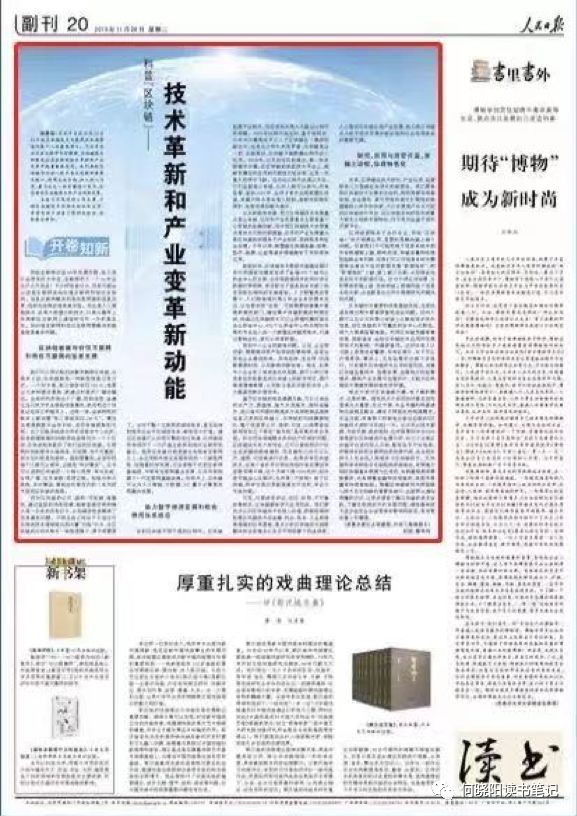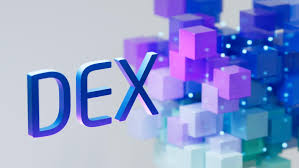Comment: Developing an alliance chain does not mean giving up the public chain

In the future, blockchain has a long way to go in terms of technology research, industrial applications, and regulatory services. We must strive for the initiative in the development of blockchain technology, especially to achieve breakthroughs in the core technology of the alliance chain with high performance, security privacy, high availability and high scalability, and vigorously develop domestically controlled blockchain technology platforms that are self-controlled In terms of the development and deployment of the blockchain system, it fully reflects Chinese characteristics, rather than being completely based on foreign open source platforms.
Combining the above, logically, Academician Chen Chun's point of view is that Bitcoin and Ethereum are public chains, everyone can participate, so it is difficult to supervise, and the alliance chain as a emerging technology has access Control, has excellent privacy protection, and high performance, so it should be vigorously developed. This view is undoubtedly correct, and it is also the correct way for us to implement regional blockchains. However, when the technology is implemented, we must also prevent the risk of insufficient basic research and basic technology capabilities.
As practitioners of the IT industry, I feel that we should not forget the lessons of history. In terms of self-controllability, we develop, customize, and provide technical services on foreign open source software platforms to serve domestic user needs. We Has been doing it, but the result of doing so for many years is that in the operating system, database software, middleware software and other core infrastructure layers, in the TCP / IP / HTTP and other protocol layers, has been monopolized by foreign countries; in the formulation of technical standards , Fully controlled by others. China's huge software market has not been transformed into strong technical capabilities. Even our university computer textbooks are in accordance with popular IT standards abroad. The teaching content is basically free from domestic software and hardware companies. From C language, Java Language, Go language, to Dos, Windows, Unix, Linix operating system, to Oracle, MySQL database, to Tomcat, Nginx server. From an industry perspective, domestic IT basic software companies have always done things based on open source software to repair Chinese culture and ease of use. For example, in order to fight against Microsoft's monopoly, we have supported Chinese Linux systems for many years. As a result, a group of IT brokers has been created. Many of our IT application companies are just a group of system integration companies, but they are constantly carrying boxes.
The alliance chain is modified on the basis of open source software in the United States, which essentially gives up the development of technology in its entirety. In the United States, apart from commercial closed source software companies such as Oracle and IBM, open source software has also been called a popular The business model, based on the open source model of Docker, Kubernetes, elastic, mulesoft and other companies, has a market value of billions of dollars. In our opinion, it is a cheap thing. Its essence is to achieve the de facto standard of others. In the field of artificial intelligence, in the field of big data, this is already the case. Technologies such as Tensor Flow and Spark have been proposed by American companies and teams and have been applied in China. In other fields, many times, even many are not easy to use open source software. Just using more people has become the de facto standard, which has also made these American open source software companies. In the field of blockchain, we are not lagging behind. We have the fact that we are leading in the world, whether it is cognition or technology, whether it is applications or communities. At this time, developing the alliance chain is equivalent to giving up completely. The existing advantage is that the development of the alliance chain is the development of the HyperLedger of the IBM Corporation in the United States, because this is the current major open source technology, and the domestic alliance chain is mainly modified based on this. At the same time, the main support for the alliance chain is tantamount to our indulgence in the development of technical standards such as Cosmos and Polkadot in the United States. Although there are many problems with public blockchains, is it the best solution to avoid them? The development of the public chain has significantly promoted the advancement of capabilities in areas such as mathematics, cryptography, computer storage and networking, and multi-party secure computing.
- Chinese Computer Society Report: Research Progress on Key Technologies of Blockchain
- Babbitt Original | Microsoft, Baidu successively layout, is DID an inevitable choice for the digital process?
- Yao Qian: What is the difference between the new financial market infrastructure based on blockchain and traditional FMI?
We should still review the speech of General Secretary Xi, strengthen basic research, improve original innovation ability, stay at the forefront of theory, occupy the commanding heights of innovation, and gain new industrial advantages. Therefore, I personally believe that when developing the alliance chain and landing the industry, the development of the public chain should not be abandoned. After all, the public chain has passed the era of pure digital currency and is moving towards a wider range of computers and mathematics and cryptography. The future of learning.
We will continue to update Blocking; if you have any questions or suggestions, please contact us!
Was this article helpful?
93 out of 132 found this helpful
Related articles
- South Korea is enacting a cryptocurrency bill, virtual currencies will be classified as digital assets
- U.S. mutual funds enter the blockchain in a big way
- Blockstream CEO: Bitcoin is paramount, stablecoin and central bank digital currencies cannot match it
- Behind the difficulty of recruiting on the blockchain: the number of job seekers reaches 7 times the recruitment demand
- Blockchain emerges like a tiger? Thoughts on the Fourth Wealth Mania
- U.S. digital asset supervision still follows the lawful and orderly principle. In 2019, the "toll station" model will be opened to embrace innovation
- Popular science | Zou Chuanwei: Global stablecoins and central bank digital currencies






